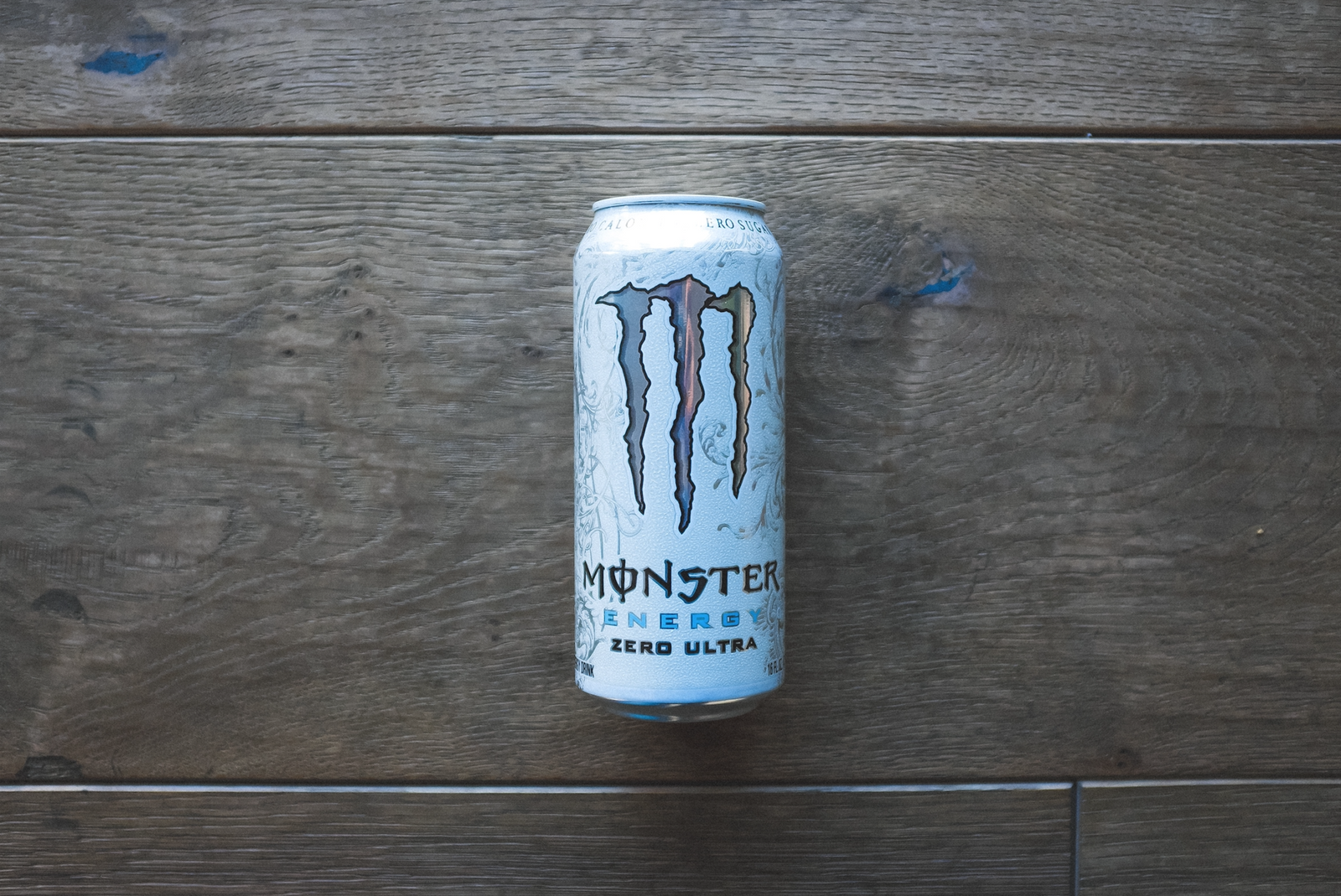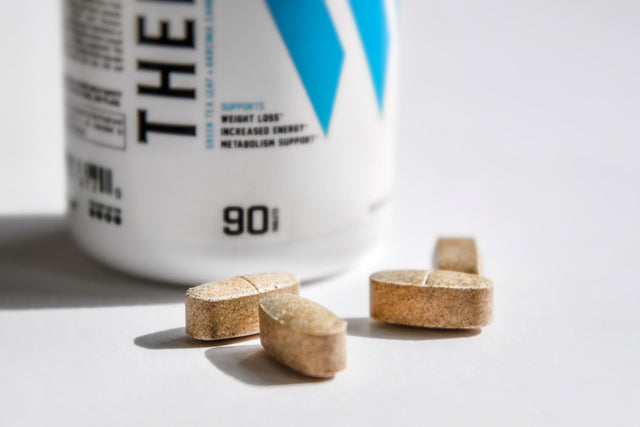Six or seven years ago, there wasn’t a single moment you would find me without an energy drink in my hand. Whether it was the tall flashy White can of Monster Zero Energy Ultra or the Cherry Citrus Sparkling Energy Rockstar, I was constantly sipping on an energy drink to help keep my caffeine levels at an all-time high.
When you’re young, you don’t really take into account the negative side effects or impact that some things may have on your health. The fact of the matter is, that energy drinks are a band-aid. Instead of finding out why you’re chronically fatigued, tired, or have low energy levels, people drink energy drinks to fix their lethargic behavior, when in fact, your fatigue could be caused by a much deeper rooted issue such as hormonal imbalances, malnourishment, dehydration or micronutrient deficiencies. So how do energy drinks really affect your health? Are energy drinks really bad for you? Or, is it the overconsumption of energy drinks that give them a bad reputation? We’re going to find out.
Are Energy Drinks Bad For You?
A systematic review from the Cochrane Library Database, published by Frontiers In Public Health revealed that consumption of energy drinks, especially amongst adolescents could have some serious adverse effects on general health and behavioral outcomes. Recent literature has also found that energy drinks may have a negative impact on developing cognitive function and abilities, kidney damage, tooth decay, and a higher risk of diabetes [R]
The main concern with energy drinks is primarily related to the caffeine content. Too much caffeine can cause serious health issues such as heart palpitations, hypertension, nausea, vomiting, marked hypocalcemia, metabolic acidosis, and convulsions [R] That being said, too much of one thing, is never a good idea, however when it comes to energy drinks, deals like “But three for five dollars” can entice buyers to purchase and drink more caffeine, leading to overconsumption. In that case, energy drinks can be bad for you.
How Much Caffeine Do Energy Drinks Have?
Most energy drinks hover between 50-90g of caffeine. But some like 5-Hour energy hit a higher upper limit nearly doubling most popular energy drink brands.
- Monster – 86mg
- 5-Hour Energy Shot – 215mg
- Red Bull – 111mg
- Full Throttle – 72mg
- AMP Energy – 74mg
- Rockstar – 72mg
- Vault – 47mg
Now I know what you’re thinking. If the main concern with energy drinks is the caffeine content, then what about coffee? A single cup of coffee has 95mg of caffeine, which is 9g more than a monster. After a few cups in the morning, we’re looking at a pretty hefty amount of caffeine. But, the biggest problem with energy drinks in addition to the caffeine, are the other ingredients, and how energy drinks are consumed. Especially when mixed with alcohol.
If you’re highly sensitive to caffeine, and you still want your fix, then you should probably read the article below
RELATED 6 Of The Best Natural Sources Of Caffeine To Jumpstart Your Day
Energy Drinks Have A Ton Of Added Sugar
Energy drinks also have an absurd amount of added sugar, which can lead to obesity [R]. In a single small 8.4 fluid ounce can of Red Bull, there’s 27 grams of sugar, which is already two grams over the recommended daily value [R] In a conventional sized, original Monster, there’s 52 grams of sugar! Which is twice the amount of the recommended daily value from the WHO. That being said, yes you can opt for the sugar-free or total zero options that most mainstream brands carry. However, most consumers feel like they’re sacrificing taste for nutrition. Just remember, adding 52g of sugar to your diet from one beverage, can quickly add some unwanted pounds to your frame.
Mixing Alcohol With Energy Drinks
For most of us, and approximately 71% of adolescents between 18-29 ordering a Vodka Red Bull is no big deal. “But a study of US college students found that those who reported combining energy drinks with alcohol were more likely to experience adverse consequences due to their own drinking compared to those who only drank alcohol. Adverse consequences included: being taken advantage of or taking advantage of someone sexually; riding with an intoxicated driver; and being hurt or injured” [R]
The issue is that consuming alcohol with high amounts of caffeine reduces drowsiness, without diminishing the effects of the alcohol, resulting in a ‘wide awake inebriation’ keeping you up longer, to drink more [R, R]. Although it may seem that you can control motor function better while mixing energy drinks with alcohol, there is no actual reduction in the effects of the alcohol on the impairment of motor coordination, reaction time, or the breath alcohol concentration [R].
Are Energy Drinks Bad For You? The Takeaway
The systematic review of studies investigating energy drink consumption does demonstrate and validate legitimate safety concerns with the consumption and toxicity of energy drinks and their overall health effects. But, on the other hand, as health-conscious consumers, you already know that too much of one thing is always bad for you. And, remember the old adage, “everything in moderation.” Going overboard, and drinking 3-4 energy drinks in a day, will absolutely be a detriment to your health, cause you to gain weight, and may result in more serious health issues. Just as drinking 6-7 cups of coffee would be also. But, overall, I don’t think there’s much to be concerned with by drinking an energy drink every once in a while.
Overall, energy drinks are a Band-Aid to a much larger issue. If you’re experiencing chronic fatigue, lack of energy and motivation, it’s most likely due to a deeper and underlying health issue. Contact a physician or healthcare professional to find out why you have a severe lack of energy, so you can treat the root cause, instead of causing detriment to your body.
Looking for alternatives to get a natural form of caffeine to help increase your energy levels and be more productive?
Swolverine’s Therm contains 20 clinically proven ingredients to help increase your natural energy levels, and help you achieve your goals.
SWOLVERINE is an endurance athlete and active lifestyle brand. Made for the elite athlete, and the strong-willed our products were designed to fuel your athletic performance. We perform when you perform.
We believe that everyone can optimize not only their athletic performance but their human potential. The way we believe we can optimize performance is through transparency, clinically effective doses, and clinically proven ingredients with evidence-based outcomes. We provide the nutrients you need to power your active lifestyle.
References
- Van Batenburg-Eddes T, Lee NC, Weeda WD, Krabbendam L, Huizinga M. The potential adverse effect of energy drinks on executive functions in early adolescence. Front Psychol(2014) 5:457. doi:10.3389/fpsyg.2014.00457
- World Health Organization. WHO Basic Analytical Toxicology (2005). Available from: http://www.who.int/ipcs/publications/training_poisons/basic_analytical_tox/en/index.html.
- Delli Bovi, Anna Pia et al. “Obesity and Obesity Related Diseases, Sugar Consumption and Bad Oral Health: A Fatal Epidemic Mixtures: The Pediatric and Odontologist Point of View” Translational medicine @ UniSa 16 11-16. 1 Jul. 2017
- “WHO Calls on Countries to Reduce Sugars Intake among Adults and Children.” World Health Organization, World Health Organization, 17 May 2016, who.int/mediacentre/news/releases/2015/sugar-guideline/en/.
- O’Brien MC, McCoy TP, Rhodes SD, Wagoner A, Wolfson M. Caffeinated cocktails: energy drink consumption, high-risk drinking, and alcohol-related consequences among college students. Acad Emerg Med(2008) 15(5):453–60. doi:10.1111/j.1553-2712.2008.00085.x
- Arria AM, Caldeira KM, Kasperski SJ, Vincent KB, Griffiths RR, O’Grady KE. Energy drink consumption and increased risk for alcohol dependence. Alcohol Clin Exp Res(2011) 35(2):365–75. doi:10.1111/j.1530-0277.2010.01352.x
- Weldy DL. Risks of alcoholic energy drinks for youth. J Am Board Fam Med (2010) 23(4):555–8. doi:10.3122/jabfm.2010.04.090261
- Ferreira SE, de Mello MT, Pompéia S, de Souza-Formigoni ML. Effects of energy drink ingestion on alcohol intoxication. Alcohol Clin Exp Res(2006) 30(4):598–605. doi:10.1111/j.1530-0277.2006.00070.x
- Breda, et al. “Energy Drink Consumption in Europe: A Review of the Risks, Adverse Health Effects, and Policy Options to Respond.” Frontiers, Frontiers, 20 Aug. 2014, https://www.frontiersin.org/articles/10.3389/fpubh.2014.00134/full#B31













